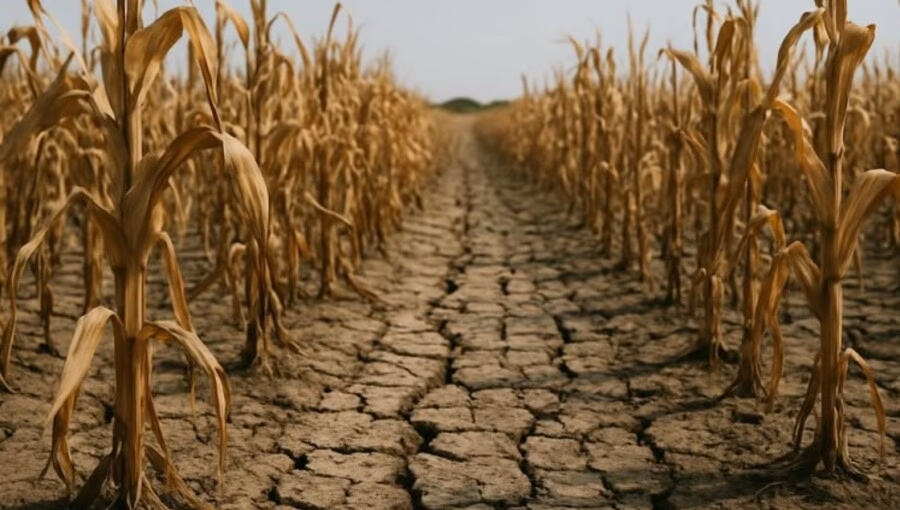Farmers in southern Hungary’s key agricultural zone are struggling to cope with intensifying drought conditions driven by climate change, which are slashing crop yields and depleting groundwater. For some, the situation has become so dire they are considering relocating or leaving farming altogether.
The region — a vast plain between the Tisza and Danube rivers — is known for producing corn, grains, and sunflower seeds. But experts warn its future as a productive farmland is at serious risk due to rising temperatures and lack of rainfall.
Despite some recent rain, central Hungary’s soil remains “critically dry,” according to the Hungarian meteorological service. Summer crops have been severely impacted.
Krisztian Kisjuhasz, a fifth-generation beekeeper from Ladanybene, said he had to move his bees 80 kilometers away to the floodplain of the Tisza River to ensure they could access pollen — something he’s never had to do before.
“Last year, 30% of our bees died mainly because there wasn’t enough pollen due to the drought,” he explained. “They weren’t strong enough for winter.” He now faces higher costs and plans to raise honey prices, while also contemplating selling his ancestral farm. “There is no future for beekeeping in the Homokhátság,” he lamented.
To help address the crisis, the Hungarian government in May launched a 5 billion forint ($14.29 million) project aimed at cleaning canals and improving water retention. Still, Prime Minister Viktor Orbán admitted last month that these measures can only reduce, not eliminate, drought damage.
The stakes are high. In 2022, drought caused a staggering 1,000 billion forints ($2.86 billion) in agricultural losses and contributed to inflation reaching 20-year highs.
Farmers like Csaba Toldi in Jászszentlászló are also feeling the pressure. His grasslands failed for the first time this year, forcing him to seek other work. “Water must be brought back to the Homokhátság, or this area will dry out completely,” he warned.



